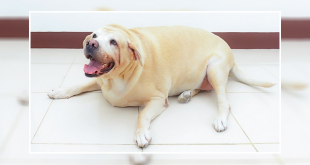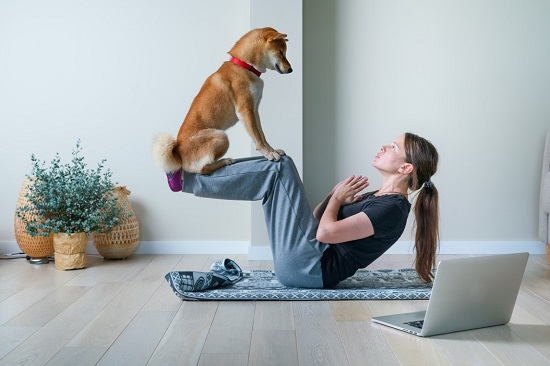Dogs are the best friends of human beings – they are loyal, affectionate, caring, and stress relievers. However, your pet can also experience lows in life – anxiety is one mention. Your best buddy seems different and doesn’t enjoy playing anymore.
You went for a thorough medical check-up and found the change is due to emotional issues in your dog. The causes of stress in animals are innumerable. You must seek help from a clinical animal behaviorist to get instant support.
Changes in the house environment, loss of a companion, recovery from major illness or surgery, the addition of a new family member, or change of place are a few common causes of stress in animals.
Let’s explore some of the major signs of stress which require more than love and compassion from you – you require therapies for your fuzzy friend. 8 Dog Stress Signs that You Always Want to Keep an Eye on Look for indications from rare to frequent in your pets to understand the unusual behavior.
Intermittent licking of lips:
When your fur buddy is constantly licking lips, there might be several reasons but, stress is one of the alarming causes to look for. Hunger pangs, severe dehydration, and attention-seeking are a few common signs that relate to lip licking.
However, repeated licking may be a major sign of discomfort or stress. Some dogs show this symptom immediately after a traumatic incident, but few show slowly only after encountering unnerving situations.
Excessive yawning:
Normal tiredness or boredom is a common reason for yawning in any living being. However, dogs yawn while dealing with stressful situations. Look for the number of times your dog yawns and at what time of the day.
For example, when you approach a new tool or toy near your pet, he/she shows reactions of discomfort, this is a pointer of anxiety.
Read Also: Is Your Dog Suffering From Anxiety?
Turning heads sideways:
It might sound hard to figure out this symptom, especially when you have an energetic and over-enthusiastic dog. The furry creatures tend to look in different directions during walks and outings. However, when you observe that the dog is turning his/her head side to side when least expected, it is due to stress.
Hunch down:
A crouching position or hunching down with a tail wrapped between the legs is one alarming sign of anxiety in animals. When you observe this symptom, head straight to the vet and seek help. Your fur friend might be experiencing stressful feelings and struggling to deal with the routine.
Hideaway from the owner:
When your dog feels shy and restricts itself from appearing even after calling, it is a worrying sign of stress. You must seek medical help immediately and show compassion to deal with this situation. Some dogs bark frantically or pounce on the owner to express their feeling of anxiety.
Read Also: 7 Tips To Help Your Dog Or Puppy Deal With Separation Anxiety
Change in their toilet habits:
Changes in the color of the urine, the quantity of wee, and the type of poo are reasons for stressful health. Your dog’s well-being is always related to their toilet habits.
A well-trained dog will never wee inside the house, and if such accidents happen more frequently, irrespective of change in the bowel movements, it can be a significant sign of stress. Difficulty in poo or diarrhea is both associated with anxiety in animals.
Change in appetite:
Every pet has certain eating habits based on age, breed, and weight. But when you witness massive changes in their eating habits, either eating more (quantity or frequently) or not eating at all (leaving the food in a bowl or vomiting), it is a symptom of concern.
Nervous shaking and panting:
An explained shaking, shivering, and panting can be a huge concern in any creature. If your fur friend is scared, nervous about any situation, looks uncomfortable, and gasps, then you must seek medical attention immediately.
These are some warning signs that trigger mental issues in animals. Hence, a happy, relaxed approach with constant love can sort it.
Read Also: Is CBD Safe For Your Dog With Anxiety?
Handful tips to calm a stressed dog
- Arrange for a safe, warm, and quiet place for your pet. Ensure that the place you choose is comfortable with his/her favorite bed and blankets. You can also get some small toys to comfort. Place the dog’s resting space under the stairs or beside the cupboard, away from too many disturbances.
- Don’t expect a lot from your dog. It means reducing the fuss and letting them enjoy their ‘me’ time. You can leave them with toys or chewing bones instead of always demanding to play around and be active.
- Maintain a routine and stick to it. The day should be a balanced combination of sleeping, feeding, exercise, and playtime.
- Avoid pouring your stress and anxiety into your pets. Manage your tone, voice, and body language. Dogs are hyper-sensitive to the behavior of their owners. Changes in your temperament will reflect.
- Use a plug-in diffuser or spray (pheromone) at your home. It will help to calm the pet.
- Check on the specially formulated nutritional supplements that might help maintain the normal bowel of the dog. You can get more options from the vet.
- Do not force anything. Walking, outings, fetch games, food, or making new friends will help recover from stressful feelings for the dog.
- Avoid direct eye contact, approaching head-on, and leaning towards the dog. This behavior leads to frantic barking, snarling, and biting in dogs.
Remember that every dog is unique, and it depends on the reason and type of anxiety. You must provide constant affection, patience, and proper treatment to help your buddy recover from the situation.
 DogExpress
DogExpress


















 in Chandigarh, India.
in Chandigarh, India. 

